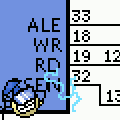|
Installing via brew or using podman? Or did you want a GUI too
|
|
|
|

|
| # ? May 18, 2024 05:43 |
|
Anyone have tips for how to navigate a large tech company? I have this vague fear about it being very political and cut throat. Anyway I'd love to hear any hot tips or pitfalls from people who've been there and done that. tia
|
|
|
|
I've been in big tech for ~8 years, but only moderately successful, so take my advice with a grain of salt. I think it's possible to have a very chill, pleasant experience, or a really stressful cut-throat experience, depending on your level of ambition. If you just want to coast along working < 40 hours a week getting slightly above-average performance reviews for your entire career, you can do that and be very comfortable. Heck, you'll probably still visibly outperform some of your peers. Where you might encounter politics and cut-throatiness is if you want to really climb the ladder and reach the echelons where the slots and projects are limited. I have no personal experience with that, so I'll let others say if I'm right or wrong there. My big tip is, make sure you're choosing the work that will actually get rewarded. You can work really hard and do really great work on a problem that's either genuinely unimportant, or for whatever reason isn't valued by the internal promotion process, and you might as well not have bothered. This can apply to choosing a team, too - some teams' work is genuinely more impactful (eg a core infrastructure team where any performance optimization will save the company thousands of cores); likewise some teams' work is just easier to translate into numbers that will look good on a promo statement.
|
|
|
|
awesomeolion posted:Anyone have tips for how to navigate a large tech company? I have this vague fear about it being very political and cut throat. Anyway I'd love to hear any hot tips or pitfalls from people who've been there and done that. tia I've worked for large companies where it felt like my manager was only vaguely aware of who I am, I would see him twice a year for a 15 minute "performance review" where he acknowledged that I'm a competent employee and gave a raise barely edging out inflation. In my experience, the politics and slapfights come with the smaller companies, in the larger ones you're so far removed from anyone who's capable of making a decision that you don't see it. On one hand it's safe, on the other hand it's boring as poo poo. Every time I did it I got fed up with the way things ran and tried to make incremental changes with various degrees of success, which both made it less boring and less safe.
|
|
|
|
awesomeolion posted:Anyone have tips for how to navigate a large tech company? I have this vague fear about it being very political and cut throat. Anyway I'd love to hear any hot tips or pitfalls from people who've been there and done that. tia IC or management? IC you risk getting lost in a crowd, which is a good or bad thing. You'll probably mostly live in a bubble around your team, which is fine, but that also means don't expect to get any sort of notice outside that bubble unless you go out of your way. There will be a bunch of strategy and priority shifts that will feel like they are explicitly designed to gently caress you over. Don't worry, no one who is making the calls even knows you exist. The changes will seem like very dumb things, sometimes they are and sometimes they are for very good reasons that you just don't have insight into. It doesn't really matter. If you want to rise you'll need to keep an ear to the ground as to what the next "thing" from upper management is, good timing, and some luck. I'd generally say if you want to rise quickly you need to take risks, more so than at a small company where you might get elevated by simply being comptetent/hustle/etc. A cycle of take risk-->lay fallow to build cred-->take risk is probably what the most successful ICs I've known have done at larger places. However, you're also likely to get raises and occasional promotions without sticking your head up too if that's more your speed. MY experience it's only marginally political, generally easy to avoid if you don't care. You mostly just need to know who will listen and who to never talk to ever. Higher end ICs (like, TVPs or senior Fellows) are either an unholy mix of technical and political prowess or so unbelievably gifted technically they can do whatever they want. Management, your first line managers will be overworked and may or may not be on your side. This is almost always a mix of good people keeping the ship moving and sociopaths who are looking for bodies to sacrifice to get to exec. Middle/Upper management is a lot of gladhanders, people who happened to be at the company at the right time, and a few good eggs and sociopaths. Exec/CSuite you'll never see, they won't talk to ICs outside their own pets. First line isn't too political but it gets extremely political past that, its most of the job. Edly posted:I've been in big tech for ~8 years, but only moderately successful, so take my advice with a grain of salt. I think it's possible to have a very chill, pleasant experience, or a really stressful cut-throat experience, depending on your level of ambition. If you just want to coast along working < 40 hours a week getting slightly above-average performance reviews for your entire career, you can do that and be very comfortable. Heck, you'll probably still visibly outperform some of your peers. Where you might encounter politics and cut-throatiness is if you want to really climb the ladder and reach the echelons where the slots and projects are limited. I have no personal experience with that, so I'll let others say if I'm right or wrong there. This is a v.good writeup.
|
|
|
|
Hadlock posted:Installing via brew or using podman? Or did you want a GUI too GUI is not important, but podman was rather low level if I remember from looking at it a few months ago. awesomeolion posted:Anyone have tips for how to navigate a large tech company? I have this vague fear about it being very political and cut throat. Anyway I'd love to hear any hot tips or pitfalls from people who've been there and done that. tia Find the highly visible places where merit trumps politics, which may not exist depending on where you're at. Talk to people and learn about the org and be very intentional about what you work on and who you work on it with. Listen to problems and solutions that executives are passionate about and work closer with those tasks. I just "interviewed" 6-7 teams before choosing a new one to move to, and made sure there was lots of rewarding work, good executives, etc. It shouldn't be too political at a healthy place until you're at Principal/Director level.
|
|
|
|
Podman is a symlink away from being a 100% command line drop in replacement in 2022 might check it out again
|
|
|
|
Hadlock posted:Podman is a symlink away from being a 100% command line drop in replacement in 2022 might check it out again Does it support the compose spec yet?
|
|
|
|
I'm starting to really wonder if I should look for a new job. and I need some perspective from you oldies. I've worked as a developer/tech lead at an IT consulting company for the past 5+ years since graduating college. I feel like the nature of this job might make it fairly different compared to a lot of others, but I need you guys tell me if my experience seems common. Are most jobs like this? Should I appreciate what I have, suck it up, or look for something better?
|
|
|
|
That's pretty much exactly how I felt after working in consulting for two years, except I was stupid enough to go to another shop that did the same thing and do it for two more. If you have that much leadership experience, you might be able to jump to another C#/.NET lead job even if you don't consider yourself an expert on it. I have no problem bouncing around between Android Java, Desktop Java, ASP.NET, and Xamarin while consulting, then getting a primarily ASP.NET job, then a brief stint at a startup that used Python/React, then another primarily Java job. Timesheets are an annoying time sink. The advantage of not doing them isn't that you can spend 4 hours watching videos, it's that you can spend 4 hours doing something that needs doing without tying it to a billable client. Where I worked you had to put in 8 hours of billable work and were expected to do extra things like lunch and learns on top of that. If I'm not billing every 15 minutes, I can spent the time to rewrite documentation for a tool, make a presentation for my team, or anything else that will be useful without having to justify it to anyone. I worked three remote jobs and so far only had to deal with meeting out of office hours at my current one. We have people in Vancouver and people in Kharkov whose hours don't overlap, thankfully the core of the team is right in the middle. I mostly have to plan around these people's schedules and try not to make one stay too late and other wake up too early too often. Scope creep and over-eager product/sales are going to throw in a wrench in the works even with internal projects. A good product team is going to be willing to work with the lead and manager make sure that a project is still on schedule and what can be cut or changed to get it on schedule. This particular point is one of the biggest reasons why I became a lead in the first place, and it's definitely not a job for everyone. There is definitely an aspect of product and project management. If you just want to be a senior dev, you need to work with a strong lead that can at the very least shield you from a bad PM. It's definitely doable and I've seen a lot of people do it successfully. In my experience as a lead and a manager, a senior developer who really knows the technology and the project is an incredible resource, since you're interacting with the code on a level that I can't match. I've worked with absolutely abysmal PMs where wrangling them was a bigger challenge than any technical thing we did and some amazing PMs who were an absolute pleasure to work with. There are plenty of both out there. I've also worked with amazing leads and absolute zilches that let the PMs take a massive dump on any kind of planning or consistency. Leaving consulting isn't necessarily going to mean you end up with the good ones, but it definitely sounds like you're ready to roll those dice.
|
|
|
|
when i consulted completely indie i only signed if they would agree to be billed by week. its a 1000% better experience for you and client but i did way weirder and less corporate poo poo. neural net weenie gets treated different than sharepoint peeps news at 11, i guess i used to have to do 10pm meetings to deal w east europe peeps god it sucks i agree never do it if you want theres singular w2 jobs out there to be had for the taking. i get bored less so ive just been takin w2 jobs nowadays
|
|
|
|
Consulting jobs are good for getting exposure to tons of different tech, processes, and potentially domains, but I much prefer working for companies with products. Like you indicated, consulting work can be a relentless grind, and you can be expected to manage too much context-switching to ever really feel comfortable. It also messes with your head, where you feel like you actually need to be delivering for every hour you bill, 8 hour a day, which isn't realistic. It's worth it if you're an independent contractor or specialist where you can bank serious 1099 monies, less so when the shop is scraping 2/3s of what the client is billed. I think you earned your stripes in the consulting world, and since you haven't yet, maybe it's time to try a traditional company. Boredom shouldn't be too much of an issue, because you should be job hopping every 3 years or so at your age, but if it is, consulting shops are always hiring.
|
|
|
|
I can try to weigh in on my Big Tech experience. I think the biggest factor to good career growth in a huge company comes from staying close to good people. You want to work under a good manager who has at least two degrees up of at least competent management above them and preferably competent non-assholes adjacent to them as siblings under their first manager. You also want to network with people in the technical track who are up there and you can get along with. I have a few whose personalities gel with me without having to put on some giant mask. My worst team/manager experience was when I first started here. There was a 2nd/3rd degree of separation between two humungous assholes that was ruining it for everybody else. HR had to eventually intervene to tell one of them they yelled at everybody and they yelled back at HR during the intervention. The other one was in charge of the site overall and was eventually removed when the site's morale turned out to be the lowest in the global company multiple times. Once they left, the same first-level manager still sucked but far less, and I eventually secured better people. Having good people like this makes it much more possible to advance by doing normal, professional, and relevant things. The career advice I've gotten from bad folks was also bad. Some of it was quite cynical even to myself! You will want to strongly consider following these people to other projects if they get moved. They are more important than the work itself. If you stay put on a good project/team and a bad manager rolls in, it'll become a bad project/team within the next year. You also want to try to have the same, good folks above you for a complete promotion cycle or two instead of letting the winds blow managers over you. Otherwise, you'll probably just maintain "met expectations" forever at whatever level you're at. The only time I actually got promoted in my big dearth was the first time I had the same first-level manager for two cycles in the same location. Speaking of that, you don't want to be a "barnacle" in your team that's kind of attached on--especially remotely. If everybody's remote, then it works, but if you're some other remote resource, you'll easily be overlooked. Disregarding career advancement, you'll probably miss important information for day-to-day stuff even if you advocate for yourself effectively; it'll usually be a one-way street. If you get a new boss who suddenly is coming hard on you above missing expectations, get the gently caress away from them. They took one look at you, ate their Popeye's can of spinach, and decided to make your life hell for whatever reason.
|
|
|
|
Rocko Bonaparte posted:
This happens when the skip level doesn't like you. The new manager was told directly you were a low performer, and to validate then manage you out. Your only real recourse is to 
|
|
|
|
It's the old adage of "people don't quit companies, they quit managers" and the converse. And the people signing off on your promotions/bonuses/etc. are 1-2 levels above your boss usually. If those roles are vacant, in another country, have no idea you exist, dislike you, etc. it can be beneficial to proactively move far away.
|
|
|
|
Hadlock posted:Podman is a symlink away from being a 100% command line drop in replacement in 2022 might check it out again Good to know. I think there will be a lot of folks using docker desktop for "personal use" having it set up on their work systems. Also, if their enforcement is good, might push more folks to things like github codespaces. I want to move us to codespaces, but the cost is a barrier -right now-
|
|
|
|
luchadornado posted:It's the old adage of "people don't quit companies, they quit managers" and the converse. I think this is too simple, but it's definitely true that your team is going to have a bigger effect on your day-to-day experience than your department, company or industry.
|
|
|
|
Blinkz0rz posted:Does it support the compose spec yet? I haven't done it myself, but Fedora magazine has articles on both "using docker compose with podman", as well as "manage containers with podman-compose" So, probably Redhat loving loathes docker daemon, the podman binary follows the traditional Unix binary model which means you can run it locally without specialized/messy* docker group access, they've put a lot of work into making it production ready for their customers I've been using podman locally for about three years now with no issues. I think you do have to setup docker hub as your default container repo manually, (for something like "docker run -d postrgres") last time I checked but otherwise great *"usermod -aG hadlock docker" isn't complex, but local user permissions is death by a thousand papercuts
|
|
|
|
ultrafilter posted:I think this is too simple, but it's definitely true that your team is going to have a bigger effect on your day-to-day experience than your department, company or industry. Yes but career-wise those one-offs with the higher-level stuff is why my career trajectory resembles a crab walking sideways along a beach.
|
|
|
|
Anyone have suggestions for study materials for System Design interviews? Real fun EM stuff. e: actual system design is not an issue, but in the one previous system design interview I did, I struggled to organize and present.
|
|
|
|
Iíve settled into a comfortable medium where I work on something that matters enough that I can claim to not be at a dead-end job and still get housing and be comfortable, but Iím able to claim a reasonable work-life balance so I can be defined by something that isnít my job. Iím happy with that.
|
|
|
|
Thanks for sharing advice all!
|
|
|
kayakyakr posted:Anyone have suggestions for study materials for System Design interviews? Real fun EM stuff. The thing I did to prepare for mine was to first practice diagraming and explaining(out loud to myself) systems I've worked on, in increasingly detailed fashion. Then I did the same for how I'd redesign these same systems. Then I did the same for some well known software. Like draw up and explain how to build a simplified version of Reddit. Every system design question I've ever gotten was basically designing something common, often focusing on a few well known features.
|
|
|
|
|
For what it matters, I am a Distinguished Toastmaster (did the whole deal) and it hasn't done poo poo for me getting jobs at places that do those questions.
|
|
|
|
Pollyanna posted:I’ve settled into a comfortable medium where I work on something that matters enough that I can claim to not be at a dead-end job and still get housing and be comfortable, but I’m able to claim a reasonable work-life balance so I can be defined by something that isn’t my job. I’m happy with that.
|
|
|
|
thirded yospos success stories imo, the "i am my work" folks will always be L+2 to me but that's fine bc i go home to ms, little, and poodle jones on time every day
|
|
|
|
Me too, I also go home to ms jones, it's definitely worthwhile
|
|
|
|
HEY!!!!
|
|
|
|
lmao
|
|
|
|
Anyone have any advice for finding a programming job for a company or organization that some kind of like, moral/social good? Healthcare, education, environment, infrastructure, seem like obvious areas for example, but the available industries that you can filter by on LinkedIn seem limited. https://techjobsforgood.com/ looks like an awesome resource but limited to US-based jobs, whereas I'm in Canada.
bltzn fucked around with this message at 06:21 on Jan 15, 2022 |
|
|
|
bltzn posted:Anyone have any advice for finding a programming job for a company or organization that some kind of like, moral/social good? Healthcare, education, environment, infrastructure, seem like obvious areas for example, but the available industries that you can filter by on LinkedIn seem limited. https://techjobsforgood.com/ looks like an awesome resource but limited to US-based jobs, whereas I'm in Canada. you can look for companies that are B Corporations or an equivalent. B Corporations can still be lovely though
|
|
|
|
Maybe post over in the job thread(s) We're actively hiring long term Canadian and Mexican remote contractors, and we're a certified B Corp; as far as I can tell, not actively evil
|
|
|
|
Pollyanna posted:My approach was to cram LeetCode and after reflecting on my past few months here Iíve come to the conclusion that I have no real advice, itís a lottery. Do your best, good luck, and remember: you matter! I remember your interviewing phase posting. Reading this made me happy I hope you're happier in your new job. awesomeolion posted:Anyone have tips for how to navigate a large tech company? I have this vague fear about it being very political and cut throat. Anyway I'd love to hear any hot tips or pitfalls from people who've been there and done that. tia I've been through a larger company on a unsupportive team, a consultancy with literally no support, and now I'm at a tech company on a team with people I adore and a director I enjoy working with every day. My director and our VP have worked together through 3 different companies and hire with the same mentality. When your team works well together inside of your company because they like to be around each other you won't have to play politics. As long as you have the competency to back it up and know when to deliver a strong no with a lot of good will it's easy to be genuine at work if the people closet to you all enjoy each other's company. Interview for the manager specifically and the team as a whole. I've hired 2 people onto our team over the last year and I'm about to start interviewing again and it's kinda wild how few people ever ask about who they're going to be working with and I'd imagine you probably don't want to work for someone who isn't excited to talk about their team. Portland Sucks fucked around with this message at 07:49 on Jan 17, 2022 |
|
|
|
Hello Oldie Programmers, I've been programming control systems (mainly SCADA systems for the electrical grid) for around 15+ years now. During that time, I've developed a bunch of tools, in a variety of different languages (mainly C# + WPF) that help streamline the building / testing / rollout of these systems. These tools are used everyday by the 15+ people in my group. I'm thinking about moving into a pure software development role, as my current job has slowly turned into more of a project co-ordination role. I wouldn't go as far to say software engineering is my passion, but I definitely do enjoy it, and I'm constantly trying out new languages, technologies and learning about things like DDD, microservices, etc.. I've also got my Azure Fundamentals certification (AZ900) and have a bit of experience with things like Docker. Recently I've started programming some things in Go (Golang), and I'm really enjoying it. The language really clicks with me. Ideally, I would like a position writing Go. Anyway, most of the job positions here are for Senior Software Engineers. The current industry I'm in (power / utilities), a senior engineer generally has 10+ years of experience. How many years of experience would you usually expect from a senior engineer?
|
|
|
|
riichiee posted:How many years of experience would you usually expect from a senior engineer? It varies between employers. Anything less than 3 is probably too little. But as with all jobs, if you want to do the job apply for the job and just assume they're going to ghost you anyway. Not all employers have something past senior so between the cluster gently caress of titles and job expectations just apply.
|
|
|
|
riichiee posted:How many years of experience would you usually expect from a senior engineer? It's entirely company dependent because senior means different things to different organizations. It's less about "years" than "skills". Just apply for jobs that meet your desired roles and match up with your skills. Don't pre-filter yourself, let the companies do that for you.
|
|
|
|
Agree that it strongly varies. I'd usually say for SE between 6-10 years of exp is usually when people are ready to move into senior roles, but's its more about what you can do. Are you mentoring new engineers? Are you able to lead technical sub-teams or initiatives? Are you able to represent your team to other parts of the org/company? Are you a SME in multiple areas? Those are some of the criteria I look for with people looking to move into senior roles. In the past when I've made mistakes it's usually because I over-valued years in service and didn't push on skills and accomplishments enough.
|
|
|
|
I would be very surprised if a job posting didn't mention years of experience in it. I would go by that instead because the grading isn't consistent. There's a big difference between senior roles, which is Lookback's definition, and Senior as a title. In my experience, Senior as a title is commonly the first or second step and would be somewhere between 3-6 years experience, maybe two if you're above average. The main qualification is independent work and able to design and implement.
|
|
|
|
I have seen "Senior" refer to any one of, or a combination of programming ability, management and/or architecturing responsebilites, a minimum amount of experience or just straight up seniority within the company. Apply to whatever, if you get an offer you get an offer. Title means very little.
|
|
|
|

|
| # ? May 18, 2024 05:43 |
|
 Final Update! Final Update! hendersa posted:- I have interviews with another one of the big companies in the high performance computing space in the first week of January. That's why I'm not pushing Google to hurry along with a decision. They have a reputation for asking about things relevant to doing the actual job and not CTCI puzzles, so I have high hopes. I was told that my resume "speaks for itself" and that my first interview is directly with the hiring manager, so I get to skip the preliminary technical screening interview on this one (like I did with Google).  Google Postmortem! Google Postmortem! The Google hiring committee did not accept or reject my application. Instead, I got an "on hold" status and was told that I wasn't acceptable at the L5 level. I was given the option to do two additional coding interviews for a re-review at L4, which I ended up declining. The recruiter was quite shocked at this, but I told her I had an L5-equivalent offer sitting there and that it didn't make sense to try to please the hiring committee for a shot at an L4 position. She asked me to have a call with her for her to "better understand" where I was coming from, which I accepted. The call was... interesting. She wanted to know why I'd bail out of the interview process when I was so far along, and I told her that the offer I was accepting had a hiring process where I talked to the members of a team, was interviewed on knowledge related to the role, and had a quick (approximately one week) turnaround for a decision. The "embedded systems design" interview NVIDIA gave me was actually on, get this, embedded systems design. The one Google gave me was on OS trivia with a coding problem unrelated to embedded systems. I told her that I didn't feel like I was a number during the process with NVIDIA and that there weren't any puzzles or games. She assured me that Google treats their employees very well and not at all "like a number." I told her that I did not doubt that was true, but I wasn't an employee. I was an applicant. And, the hiring committee didn't feel that this particular applicant fit their statistically-significant template of a successful employee. Things began to go a bit off the rails at that point. She strongly hinted that the reason for my rejection was that a lot of Googlers took vacation in December and that the right people weren't interviewing me or reviewing my application because of it. She also said that there was a real lack of embedded people applying with my level of experience and that I really, really needed to do the other interviews and get re-evaluated to at least get me accepted and in the door. Because "Google really needs good people like you." Then, once I was accepted, I could find a team that really liked me who would argue on my behalf to get me bumped up to L5. You could begin to really hear the frustration in her voice. The system had done me wrong, I was going to go work for a competitor, and she really wanted to talk trash about the process while fighting not to. She was trying to keep a professional demeanor and say something, anything, that would get me to do those extra interviews. But it wasn't working. But she was really trying her best. Anyway, I reiterated that the process wasn't intended for people like me and that I was sure that Google receives so many candidates that me not receiving an offer wasn't any great loss in Google's grand scheme. She said again that she was disappointed, but understood why I decided to go elsewhere. She finally asked me if Google was still my first choice for employment and whether I'd reapply in the future. I thought about it for a few seconds and said, "well, after going through all this... not anymore." There was an uncomfortable pregnant pause at that point. I'm pretty sure that if you listened closely enough at that moment, you could hear the sound of her spirit breaking a little bit. Then, she thanked me, wished me well, and told me to let her know if I changed my mind in the future. I thanked her for her help throughout the process and ended the call. Oh well. You win some, you lose some.
|
|
|







































